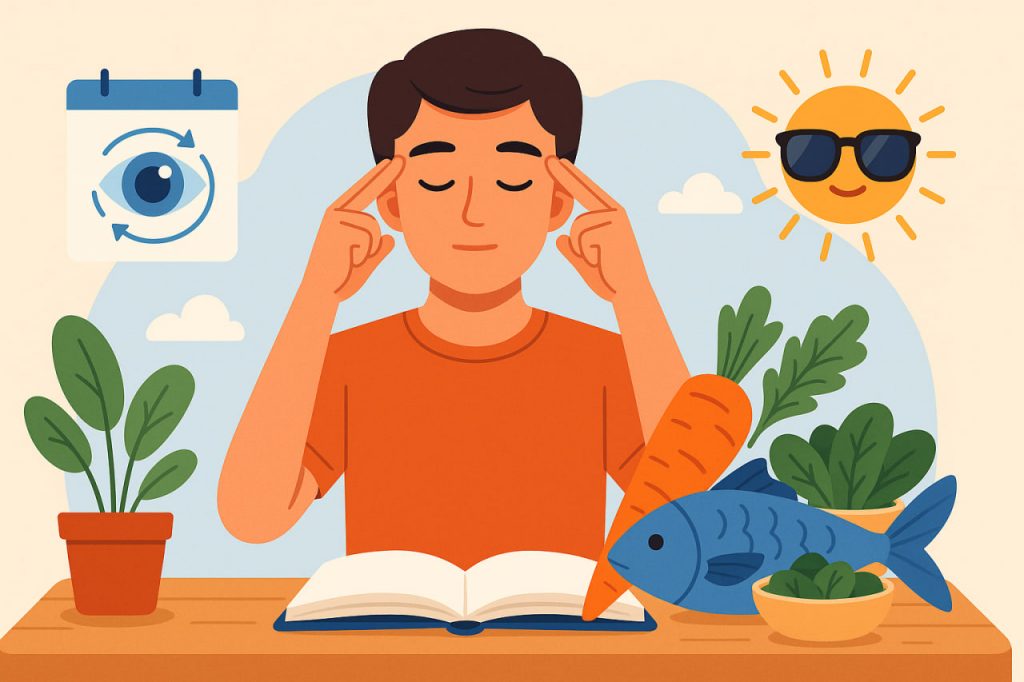Our eyes are among the most important sensory organs, giving us up to 80% of information about the world. In modern life, with constant screen use, artificial lighting, and environmental stress, taking care of vision is especially important. Eye health depends not only on good habits but also on lifestyle choices that protect vision long-term.
1. Proper Screen Habits
- Follow the 20-20-20 rule: every 20 minutes, look at something 20 feet (6 meters) away for at least 20 seconds.
- Adjust brightness and contrast to reduce eye strain.
- Keep screens at least an arm’s length away.
- Avoid using devices in the dark, which stresses the eyes.
2. Good Lighting
- Ensure proper lighting when reading or working.
- Natural daylight is best, but if unavailable, use warm, soft light.
- Avoid glare and reflections on screens.
3. Nutrition for Eye Health
- Include foods rich in vitamin A, lutein, zeaxanthin, omega-3 fatty acids, and zinc.
- Carrots, spinach, broccoli, eggs, fish, and nuts support vision.
- Stay hydrated to prevent dry eyes.
4. Eye Exercises
- Roll your eyes gently in circles to relax muscles.
- Focus alternately on near and far objects.
- Blink regularly to keep eyes moist, especially when using screens.
5. Protection Against Environment
- Wear sunglasses with UV protection outdoors.
- Protect eyes from dust, wind, and harmful chemicals.
- Use safety goggles when working with tools or chemicals.
6. Healthy Lifestyle
- Get enough sleep, as fatigue weakens focus and causes dryness.
- Avoid smoking — it increases risk of cataracts and macular degeneration.
- Exercise regularly to improve blood circulation, which benefits the eyes.
7. Regular Eye Checkups
- Visit an ophthalmologist at least once every 1–2 years.
- Early diagnosis of glaucoma, cataracts, or retinal problems can save vision.
- People with diabetes or high blood pressure should check eyes more often.
Conclusion
Maintaining eye health requires a combination of daily care, good nutrition, protective habits, and regular medical checkups. Simple changes like reducing screen strain, eating nutrient-rich foods, and protecting against UV light can preserve vision for many years. Caring for your eyes is an investment in quality of life and independence in the future.
Glossary
- Lutein & zeaxanthin – plant pigments that protect the retina from harmful light.
- Macular degeneration – an age-related disease that damages central vision.
- Cataract – clouding of the eye’s lens leading to vision loss.
- Retina – the light-sensitive layer at the back of the eye.
- Ophthalmologist – a medical doctor specializing in eye care.


